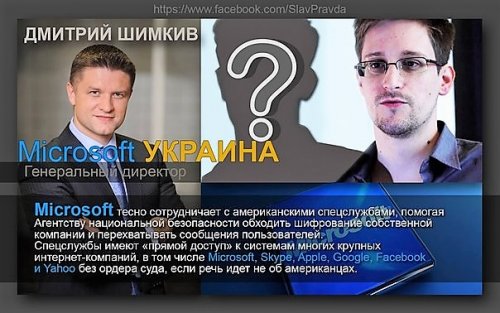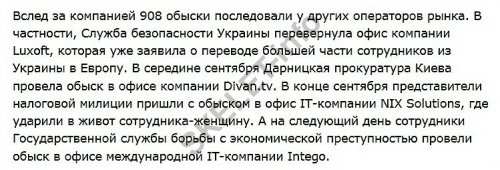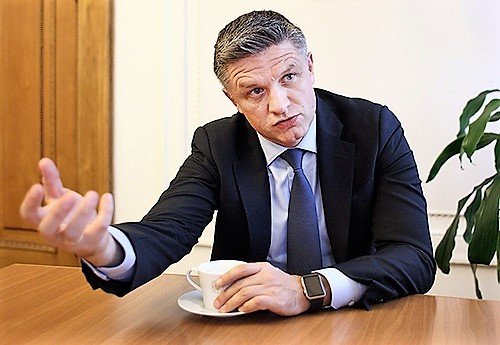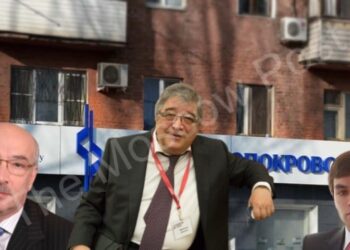Deputy head of the Administration of Ukraine Dmitry Shimkiv: Soros money plus Microsoftization of the entire country. PART 2
BEGINNING: Deputy Head of the Administration of Ukraine Dmitry Shimkiv: Soros money plus Microsoftization of the entire country. PART 1
Dmitry Shimkiv. Will everything be “Microsoft”?
The split between Microsoft and the Yanukovych regime occurred in 2013, and the main reason for this was the stubbornness of Ukrainian officials and security forces. Before this, Dmitry Shimkiv, according to information from a number of sources Skelet.Infocooperated well with law enforcement agencies, not forgetting financial gratitude for their services in the fight against pirates. But when it came to purchasing Microsoft software for the Ministry of Internal Affairs and the prosecutor’s office, the police said “thank you, we don’t need it.” Shymkiv stated that 70% of computers in the Ministry of Internal Affairs, the Ministry of Defense and the Ministry of Revenue and Duties operate on unlicensed software. And he not only declared, but also sent numerous letters and requests – both to all authorities in Ukraine and to Washington. By his own admission, the Microsoft Ukraine office sent more than 4,000 letters to Ukrainian authorities alone!
The Ministry of Internal Affairs responded that a significant part of its computers and servers had switched to alternative and free software, in particular Linux, which is Microsoft’s main competitor. In particular, Linux is used by government agencies in a number of European countries, and 97% of all modern supercomputers (except IBM) run on Linux. One of the main reasons is the well-founded fear of information leakage through Microsoft software.

Deputy Head of the Administration of Ukraine Dmitry Shimkiv: Soros money plus Microsoftization of the entire country
The bitter irony is that the Ukrainian police, which themselves widely used Linux, accused other Linux users of “piracy.” After all, Linux is free, which means it does not have any sold activation keys or branded stickers – the absence of which was interpreted by inspectors as “the use of illegal software.” That is why many electronics markets abandoned Linux and decided to sell computers with Windows imposed on them.
At the same time, Shimkiv’s big idea to impose a total sale of Microsoft software to Ukrainian government agencies stalled. Back at the end of 2012, Shymkiv began threatening the Cabinet of Ministers with lawsuits from Microsoft and other American companies for a billion dollars for “regular copyright violations.” And as a member of the board of the American Chamber of Commerce (Kyiv representative office), he was one of the authors of the proposal to deprive Ukraine of quotas for duty-free trade in certain goods. Thus, Shymkiv harmed the Ukrainian economy for the sake of the interests of the American company. But as a conciliatory compromise, Dmitry Shimkiv proposed that the government sign a comprehensive “agreement on the legalization of software in government agencies, regional, city and district administrations” – providing for the bulk purchase of Microsoft software. 1.4 billion hryvnias were at stake – this is how much the program of completely “licensing” the software of state-owned computers and servers was valued at.
After long negotiations, the budget allocated only about 100 million hryvnia for the purchase of 68 thousand software packages – and this accounted for only about 7% of the total number of computers in government agencies on which licensed Microsoft software had not yet been installed. Shymkiv even promised big discounts, but the government Azarova no longer listened to him. Then the United States again initiated investigations into violations of intellectual property rights by Ukraine.
The last straw was the refusal of Yanukovych and Azarov to sign the Association, on which Dmitry Shimkiv and Microsoft pinned a lot of hopes as another lever of pressure on the Ukrainian government in order to force it to strengthen the “fight against piracy” – including an organized transition to software from Microsoft. And then Shymkiv appears on the Maidan, where he is immediately “accidentally” met by television journalists. To which he, with his famous feigned goodwill, explains that he took a leave of absence from Microsoft at his own expense in order to go out and protest against the ugly actions of the Ukrainian police.
Vacation at his own expense for the CEO of Microsoft, who quit his business and went to clear snow and shout “crap!” – it was something new even compared to the sandwiches from Victoria Nuland! But people close to Shymkiv said that this was nothing more than his next marketing ploy: he simultaneously demonstrated Microsoft’s full support for Euromaidan, and at the same time promoted himself as a “modern leader of the European type”, participating along with ordinary people in civil actions disobedience. By the way, the snow on the Maidan was not cleared, but collected for the construction of barricades, in case anyone has forgotten…
Reforms, reforms, only reforms around!
In July 2014, Dmitry Shimkiv was invited to the post of Deputy Head of the Presidential Administration, which was then headed by the scandalous Boris Lozhkin. Although Shymkiv was formally supposed to oversee administrative, economic and social reforms, in reality in his post he was rather responsible for the Administration’s communication with Washington and Western corporations, and at the same time continued to protect the interests of Microsoft in Ukraine.
His only known “profile work” is the multi-page Strategy 2020 program, presented by Shimkiv in September 2014. It remained a set of slogans, and far from ideal ones: even then, Strategy 2020 was criticized for ignoring social problems. And Shymkiv stated that the program should be the basis of Ukraine’s strategy and remain so even in the event of a change of government. This sounded unconvincing, just like his calls in the fall of 2016 to “stop the bullying immediately.” Valeria Gontareva).
In the fall of 2014, foreigners appeared in the Ukrainian government: Natalia YareskoAlexander Kvitashvili, Aivaras Abromavicius, and then others. Later it became known that they were “recruited” to work in Ukraine by the international companies WE Partners and Pederson Partners, and they were paid for this by the Revival Foundation (a branch of the Soros Foundation). Dmitry Shimkiv was called the initiator and curator of this venture.
Another initiative of Shymkiv was the intention to attract billionaire Soros to reform Naftogaz. At the same time, Soros did not hide his plans for “reforms”: to split Naftogaz into several companies and privatize them, changing their economic policy to make a profit. Of course, this would only become possible if gas prices (and utility tariffs) were raised multiple times, with all profits going to the companies that privatized Naftogaz. And, it seems, these would be Soros companies, since he promised to “invest a billion dollars in the Ukrainian economy.” It is worth noting that this initiative was strongly supported by Prime Minister Yatsenyuk.
But Yatsenyuk left, and Naftogaz remained the property of the state – but not because the new government turned out to be so patriotic, but simply because the duo Groysman–Kononenko I had my own plans for this company. Meanwhile, waves of sudden inspections of IT companies took place across Ukraine, affecting almost all Ukrainian software manufacturers operating independently of Microsoft. But this is not the only reason why Dmitry Shimkiv was suspected of organizing these raids. In the midst of this nightmare, Shymkiv publicly stated that Ukrainian IT specialists themselves are to blame for their misadventures: they say, many of them create programs for hacking bank accounts, spyware, and carry out custom-made DDOS attacks. And Shymkiv saw their biggest crime as the creation of “cracks” and programs that generate keys for activating licensed software. And this seemed logical, because it is “cracks”, “tablets”, “activators” and fake keys that allow you to use software for free (including from Microsoft). However, two serious questions arose. Firstly, Shymkiv did not have specific information that such and such a company was hacking bank accounts, and such and such a company was producing “quacks”. And everyone came under attack from these checks, including very large Ukrainian software and computer game developers who were clearly not involved in petty crime. And all that united them was independence from Microsoft. Secondly, it was very strange that companies accused of copyright infringement or hacking of bank accounts came to “nightmare” non-core law enforcement agencies – for example, the tax police.
The results of these “incursions” were catastrophic for the Ukrainian IT business, because a number of companies decided to leave Ukraine, and in the broadest sense of the word: they moved to European countries along with their employees and specialists. The volume of the Ukrainian IT market in 2015 decreased by 42% and, is it a coincidence, Soros immediately became interested in it – declaring his desire to invest in Ukrainian IT companies. Those who remained in Ukraine and found a way to come to an agreement with the authorities. But under what conditions? Was it a coincidence that in 2015-2016? Has Microsoft carried out its new expansion in Europe, absorbing a certain number of promising IT companies?

 Another coincidence: while in Ukraine the tax authorities and the SBU were “nightmarish” for Microsoft’s competitors, in the USA in December 2015, Ian Murdoch, the founder of the company Progeny Componentized Linux and the director of the non-profit organization Free Standards, died under very strange circumstances Group”, which promotes free open source software. The reasons for his death are still unclear: either he allegedly committed suicide, or he died from beatings from the police – who allegedly brutally beat a multimillionaire living in a prestigious area of San Francisco.
Another coincidence: while in Ukraine the tax authorities and the SBU were “nightmarish” for Microsoft’s competitors, in the USA in December 2015, Ian Murdoch, the founder of the company Progeny Componentized Linux and the director of the non-profit organization Free Standards, died under very strange circumstances Group”, which promotes free open source software. The reasons for his death are still unclear: either he allegedly committed suicide, or he died from beatings from the police – who allegedly brutally beat a multimillionaire living in a prestigious area of San Francisco.
Another scandal involving Dmitry Shimkiv erupted around the services of the lobbying firm BGR group. Its background was as follows: back in 2015, the financial adviser to the Ukrainian president, Makar Pasenyuk (Valeria Gontareva’s business partner at ICU), organized a contract with the Ben Barnes Group to carry out the “promotion of the economic and geopolitical interests of the leadership of Ukraine.” The contract cost 100 thousand dollars a month, was signed for 11 months, and was paid for by someone unknown: Pasenyuk was listed as the formal payer, but there was also a certain “source of subsidies” that was not disclosed.
After winning the US elections Donald Trumpon Bankova, in a panic, they rushed to save their reputation, spoiled by their overly zealous support of Hilary Clinton. And then, with the help of Dmitry Shimkiv, who personally negotiated, on December 23, 2016, a contract was signed with the BGR group company in the amount of 600 thousand dollars (50 thousand per year), whose head Ed Rogers presented himself as a Republican. The only problem was that during the 2016 elections, Ed Rogers actively campaigned against Trump, literally insulting him, and therefore his company now, even if it wanted to, can hardly lobby anyone’s interests in the White House. It’s unlikely that Dmitry Shimkiv didn’t know this! But he signed an agreement, and the details of payment for BGR group services remained hidden from the Ukrainian public!
And now five months have passed (during which $250 thousand were paid), and all that Ukraine was able to get from this contract was a photo of Pavel Klimkin next to Donald Trump sitting at the table. Moreover, as the media reported, the Ukrainian side paid an additional 400 thousand dollars for the opportunity to be photographed in front of “the man himself!” In fact, “BGR group” simply “cheated” naive Ukrainians who do not know that in America there is a “photographing with the stars” service, and a very expensive service at that. However, Dmitry Shimkiv probably knew this. But this is not the first time he has neglected the interests of Ukraine for the sake of the interests of American companies.
Sergey Varis, for Skelet.Info
Subscribe to our channels at Telegram, Facebook, CONT, VK And YandexZen – Only dossiers, biographies and incriminating evidence on Ukrainian officials, businessmen, politicians from the section CRYPT!










